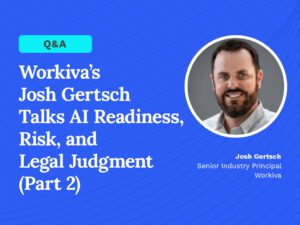The Difference Between Japan’s New AI Bill and the EU AI Act
July 4, 2025

The European Union’s Artificial Intelligence Act (EU AI Act) contrasts sharply with Japan’s new AI bill, according to eDiscovery Today founder Doug Austin. Both Japan and the EU have recently enacted landmark legislation shaping the future of artificial intelligence, but their approaches reflect starkly different priorities. The EU focuses on regulating risks and protecting rights, while Japan emphasizes innovation and economic growth as it integrates AI into its national agenda.
The EU AI Act, adopted in June 2024, is a 144-page regulation that directly governs AI systems across all EU member states. It adopts a risk-based framework, imposing strict rules on high-risk applications and banning uses such as social scoring and manipulative AI. The law mandates transparency, human oversight, and post-market monitoring and is enforced by the European AI Board and national authorities. It seeks to strike a balance between safety and innovation by establishing clear legal boundaries.
In contrast, Japan’s new AI bill is a concise seven-page policy framework positioning AI as a driver of economic and social progress. The Bill on Promoting Research, Development, and Utilization of Artificial Intelligence-Related Technologies encourages responsible use through transparency and adherence to international standards. Japan has established an Artificial Intelligence Strategy Headquarters. Led by the Prime Minister, its directive is to coordinate AI policies across government, academic, and industry sectors and develop a national AI Basic Plan.
Public sector usage illustrates another key difference. The EU imposes strict limitations on AI in public spaces, particularly biometric identification. Internationally, the EU extends its regulatory reach to foreign systems that impact EU residents, whereas Japan seeks leadership through scientific cooperation and international standard-setting.
Perhaps most notably, Japan’s new AI bill prioritizes infrastructure and workforce development, with specific commitments to invest in supercomputing and AI education. The EU, by comparison, addresses these areas more indirectly, for example, by supporting small- and medium-sized businesses and AI literacy.
Critical intelligence for general counsel
Stay on top of the latest news, solutions and best practices by reading Daily Updates from Today's General Counsel.
Daily Updates
Sign up for our free daily newsletter for the latest news and business legal developments.



